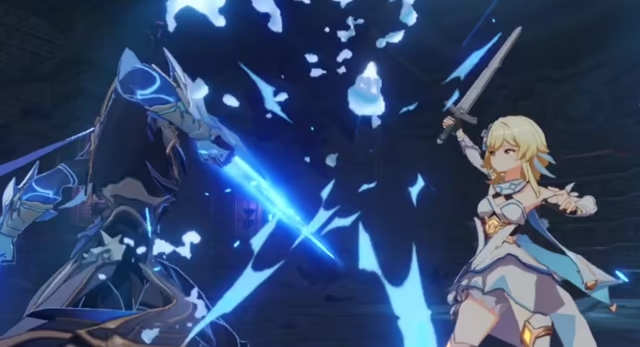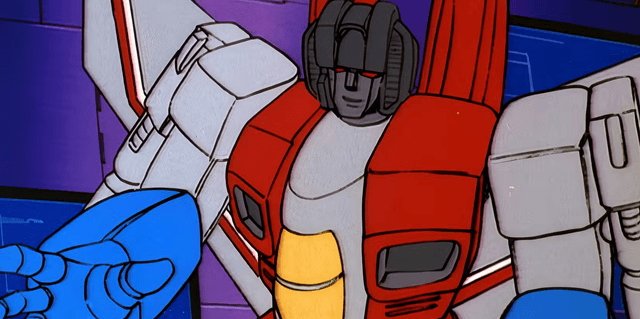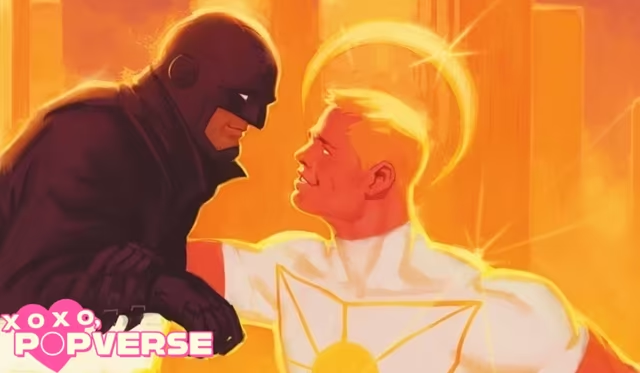If you click on a link and make a purchase we may receive a small commission. Read our editorial policy.
How Jason Aaron's Thor comics changed the God of Thunder forever
As two of his most popular creations take center stage in Thor: Love and Thunder, let's look back on Jason Aaron's epic run with Marvel's Thunder God.

For Popverse's first birthday, we are making several of our most popular members-only pieces available to the general public at large for a limited time. These pieces represent some of the best writing here at Popverse by our team, and are just sample of what you can enjoy on a weekly basis by coming a paid Popverse member.
Even by the standards of the Marvel Universe, Thor was always intended to be a larger-than-life figure. Stan Lee liked him because he wanted a character who could be grander and more powerful than even The Hulk. Jack Kirby liked him because he fit that Kirby mold of eternal, mythic figures that the King of Comics would continue to explore in every phase of his career. A couple of decades after Thor first appeared in the pages of Journey Into Mystery, Walt Simonson would re-emphasize the kind of scope Thor could command with a legendary run on the character featuring issue-long fight scenes and splash pages so jaw-dropping they still echo through comics history today.
Then came Jason Aaron, who had an ambition for Thor arguably grander than any creator who came before him: He wanted to write a god he could believe in.
A new era of Thor
Aaron's run with Marvel's God of Thunder, which cemented him as one of the company's go-to writers and reinvigorated Thor's status as a premiere Marvel hero, launched a decade ago this year, and it's already on the cusp of enshrinement in cinematic immortality. This July, two of Aaron's most popular and enduring creations – the villain Gorr the God Butcher and the Jane Foster incarnation of the Thunder God known as "The Mighty Thor – will make their big-screen debuts in Thor: Love and Thunder, further emphasizing the immense impact of the writer's time in Asgard. A few months from now, untold legions of people who've never picked up a Thor comic will know the name "Gorr the God Butcher, wielder of All-Black the Necrosword." That's, to put it bluntly, pretty rad.
But Aaron's legacy as one of the most important creators to ever work on a Thor story extends far beyond his ability to craft characters who've made it to the big screen. Those characters are a key part of that legacy, of course, but Aaron's contributions delve so much deeper, reinvigorating not just Thor's present, but his past and future, and leaving behind a thematic weight that will echo through the God of Thunder's tales for years to come.
God vs. God Butcher

That begins with 2012's Thor: God of Thunder #1, and Aaron and artist Esad Ribic's creation of a character who challenges the very idea that gods should exist at all. Gorr the God Butcher is, even outside of his thematic implications, a truly great comic book villain. He looks great, he's got one of the greatest weapons in the history of the Marvel Universe (just say the words "All-Black the Necrosword" and see if your hands don't automatically throw up some Ronnie James Dio devil horns), and his mission to eradicate all gods from throughout the cosmos is informed by a relatable, painful backstory to match his fierce determination.
With Gorr, Aaron gave Thor an adversary that he could fight not just in the present, but also in the days when he was a young godling drinking with Vikings, and even in the faraway future when Earth is barely a memory to anyone still living in a rotting, ancient universe. Gorr's quest to eradicate all gods has infected him not just with rage and a sense of otherworldly determination, but also with a terrifying survival instinct that keeps him alive even when young Thor thinks he's defeated him, and eventually preserves him even after Thor thinks he's killed him for good at the end of the 'Godbomb' storyline in Thor: God of Thunder #11. In the King Thor series (more on that later), Aaron reveals that Gorr persists to the very end of the universe itself, unable to give up his goal until every single God is dead.
That means that in every major era of his life, Aaron tells us, Thor has known the pain of Gorr, the ruthlessness of him, the all-consuming hatred that drives him to persist beyond time and space and all sense of reason. Aaron's first major creative act as the chief writer of Thor stories was to tell us that, for nearly his entire existence, Thor has carried the memory of the God Butcher as a persistent reminder that he might not actually be worthy of godhood. No matter what he does, no matter how many people he saves, the God Butcher seems to always resurface, even at the end of time itself, to remind him that someone out there still bears hatred for being likes him. For Aaron, writing Thor is a constant, persistent study of what "worthiness" actually means, and Gorr is a living embodiment of that questioning. It's a theme that will carry through his entire run, which is why Gorr never really goes away.
But the God Butcher is just one of three major narratives that persist throughout Aaron's seven-year saga. After Gorr's first battle comes the return of the Dark Elf Malekith the Accursed, the groundwork for the eventual War of the Realms event, which we'll get to in a moment. After re-establishing Malekith, though, Aaron revives his original thematic concerns with the Original Sin event, and with three little words, "Gorr was right," strips Thor Odinson of his mighty hammer, Mjolnir.

Same hammer, new Thunder God
What happens next is not just the most famous element of Aaron's time with Thor, but one of the most important superhero developments of the 2010s: The introduction of The Mighty Thor, a mystery woman who wields Mjolnir in the Odinson's absence and introduces a whole new flavor of godhood to the Marvel Universe. A few issues later, Aaron and artist Russell Dauterman reveal the mystery woman not as another Asgardian or even another superhero, but as Jane Foster, Thor's onetime lover, now a cancer patient who finds herself miraculously empowered by the hammer.
It would have been very easy for Jane's introduction as the new Thor to be a six-issue ploy for attention, an amusing subplot in a story otherwise wholly focused on Odinson, but Aaron wasn't interested in novelty. He made Jane not just the new Thor, but also a true partner to Mjolnir in ways Odinson never was, and deepened her connection to her superhero life by revealing that each time she transformed, the chemotherapy attacking her cancer was forced out of her system. Even as Jane grew stronger as Thor, she grew weaker as herself, creating a whole new thematic examination of Thor's place in the Marvel Universe. If "Thor" is not a person, but a title, and the hammer chose a cancer-stricken woman with no superpowers to carry that title, what does that say about not just who Thor is, but who Thor should be?
"There must always be a Thor"
Jane's understanding of her role as the God of Thunder was laid out through one simple phrase: "There must always be a Thor." It's a declaration that establishes Thor as a primal force of the Marvel Universe, something Aaron would explore more later, but it's also a deeper statement about who Jane is. If there must always be a Thor, and Mjolnir chose her, what does that say about the person she's capable of being? Odinson fought to prove his worthiness, using the entirety of the Unworthy Thor miniseries to hunt down a fabled other Mjolnir from an alternate universe to see if that might fix him. But Jane, from behind her Thor fought to earn worthiness and, more importantly, to understand it. In Thor #8, when she's finally revealed as the woman wielding the hammer, she explains that she keeps fighting despite what the transformation does to her cancer-riddled body, because the universe needs a god "who understands what it means to be humbled, to be mortal." The result is a fascinating and deeply emotional exploration of what it means to be a survivor and the value of simply being willing to get up each morning and reach for your chosen tool to make the world better.
These ideas, and the twin narratives of Thor and Jane, would eventually converge in War of the Realms, a line-wide Marvel event that saw Malekith bring his army to Earth's doorstep in a bid to control all 10 realms in the Marvel cosmos. In terms of scope, it remains the biggest story Aaron's ever written at Marvel, not just because of the sheer number of characters at play, but also because of its ability to rope in every major subplot he'd touched on in his run up to that point. Loki's mercurial nature, Odin's wrestling with his own legacy, Sif's drive to become something greater, it's all there, and it all pays off in very big ways.
But of course, the cornerstone of the event is Thor's journey back to worthiness, or rather, to a redefinition of the idea. After a thrilling new Thor volume with artist Mike Del Mundo that saw Thor wielding his godhood in new ways with a variety of substitute hammers, Aaron capped off War of the Realms with Thor declaring himself the "God of the Unworthy," reinforcing the realization that Gorr was indeed right about Gods and worthiness. No one, Thor argues, is worthy of godhood, and therefore godhood is only for those who are willing to work every day for millennia to prove that faith in them has not been misplaced.
This understanding of Thor is key not just to Aaron's run, but to the character's entire standing in the Marvel Universe, and Aaron's greatest legacy might be that no one had ever articulated it quite so well before he came along. Whether he was exploring the character's early Viking adventures or showing his love and compassion for the citizens of Broxton, Oklahoma as they fell prey to an evil corporation run by a minotaur who eventually fell in with Malekith, Aaron established a deep and abiding love for humanity running through every Thor adventure. Then, with that love firmly enshrined in the minds of his readers, he revealed to us that Thor often struggled to believe he was deserving of love in return.

It's a dynamic perhaps not dissimilar to Superman, but unlike DC's Man of Steel, Thor has been present for the entire span of human history. He's seen the remarkable endurance and hope these people can muster despite the brevity of their lives, even as he's surrounded by petty, often bitter gods and monsters who can live forever. The love of a people like that matters to him perhaps even more than his connection to Mjolnir, and as with Mjolnir, Thor feels he must fight every day to be willing to lift up humanity in his heart and mind, praying to them for patience and forgiveness as much as they might pray to him.
It's with that understanding that Aaron closes out his story with King Thor, a four-issue epic set at the end of time which revives Gorr and pits him against the God of Thunder, now Asgard's ancient All-Father, one last time. With the assuredness of history at his back, and a spirit cultivated and nurtured by millennia of heroics, Thor fights his last battle to prove that he's the greatest god to ever walk the Marvel Universe, offering one last statement on worthiness as he does by fighting despite the inevitable decline and fall of his universe. He fights among the ruins because someone has to, because even if no one else will see it, Thor himself must know that he never gave up.
A different kind of worship
In the afterword to King Thor's final issue, Aaron offered some thoughts about what he'd set out to seven years earlier with his grand Thor narrative, and in the process summed up what made the run so special.
"Personally, I haven't believed in God, in any gods, for a long time," he said. "Faith hasn't been a part of who I am for many years. But I still have ideas and values that are precious and fundamental to me in ways that feel almost religious in nature. Even as an atheist, I still have things I worship.
And I wrote about all of them with Thor."
For seven years in the pages of Marvel Comics, Jason Aaron and an army of incredible collaborators created a god they could believe in, a god fitting of the epic scope that brought Thor into the Marvel Universe to begin with. Along the way, they told a story about heroism as a thing true heroes only ever fight for and never truly attain. It's a story for the ages, and its thunderous impact will continue to echo through Thor's adventures for decades to come.
Interested in reading Thor comics, but don't know where to start? Check out Popverse's guide to the 10 most essential Thor comics of all time.
Follow Popverse for upcoming event coverage and news
Find out how we conduct our review by reading our review policy
Let Popverse be your tour guide through the wilderness of pop culture
Sign in and let us help you find your new favorite thing.
















Comments
Want to join the discussion? Please activate your account first.
Visit Reedpop ID if you need to resend the confirmation email.